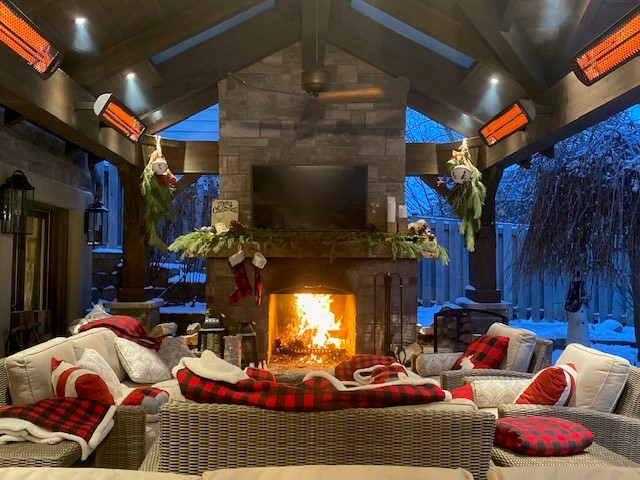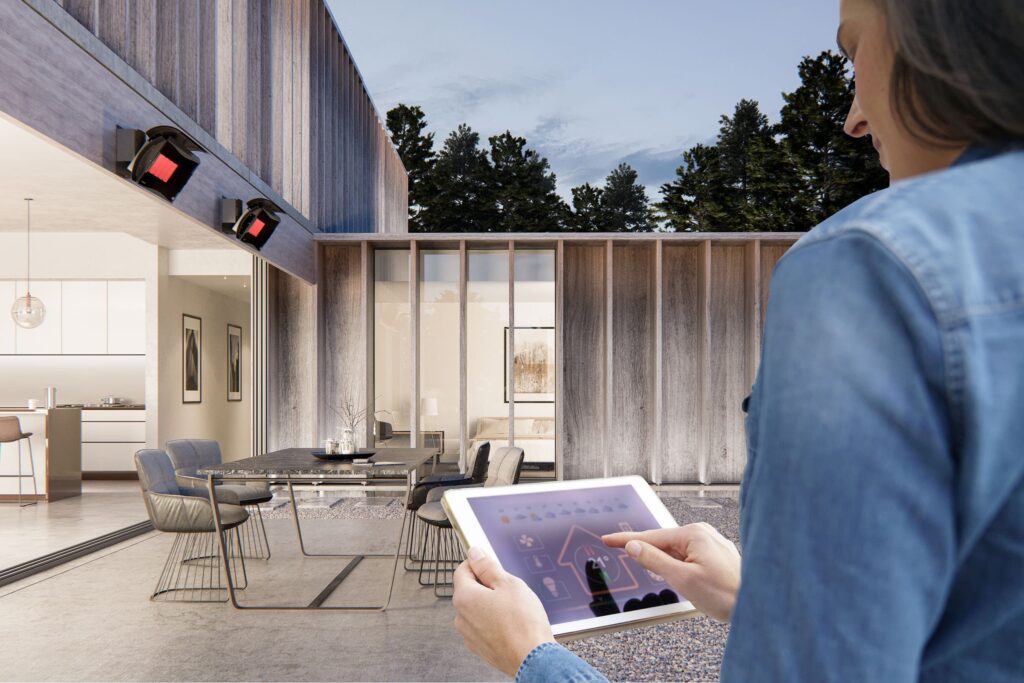Winter is coming, and many may wonder whether outdoor heaters are still effective in cold temperatures. Contrary to what you might think, outdoor heaters can operate efficiently during winter. By understanding the science behind radiant outdoor heaters and how to maximize their efficiency, you can enjoy your outdoor living spaces throughout the year.
This article will discuss how radiant outdoor heaters work, the impact of temperatures and climate on their effectiveness, and some tips for maximizing their heating efficiency during the winter.
How Radiant Outdoor Heaters Work:
Radiant heaters, also called infrared heaters, emit infrared radiation that directly warms people and objects, not the surrounding air making them the best outdoor heaters for winter. Though all infrared radiant heaters serve the same purpose of providing adequate warmth, they stand out for their exceptional ability to heat outdoor spaces efficiently.
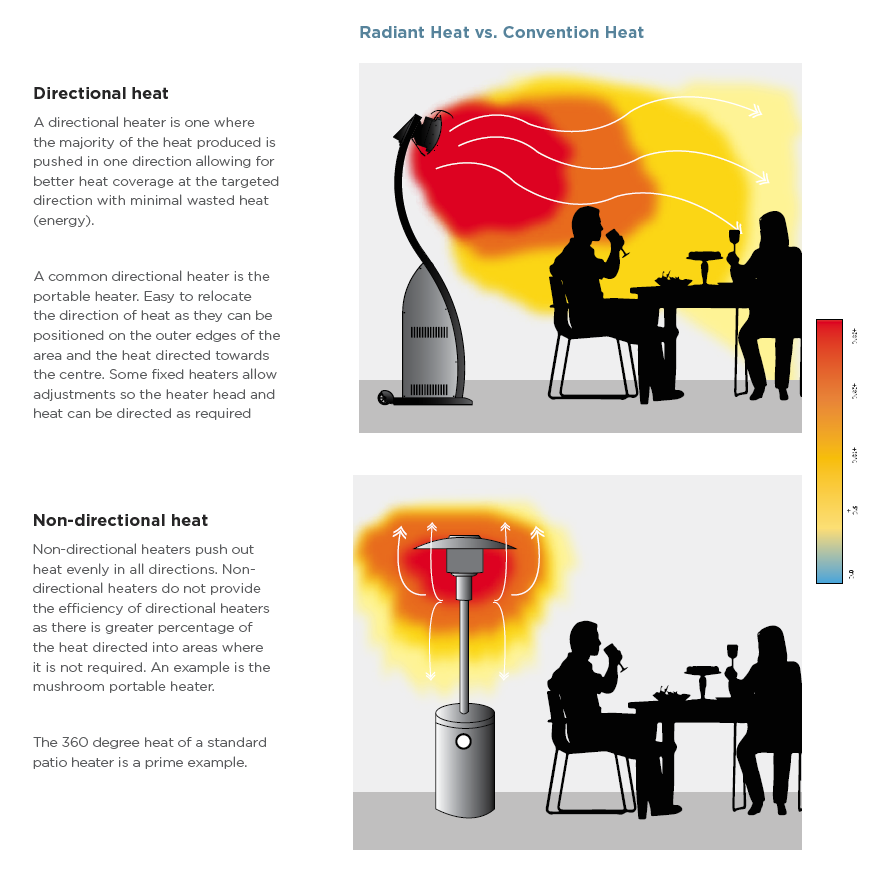
Unlike convection heaters, which mainly warm the air, radiant heaters deliver targeted warmth. This is because they emit infrared radiation absorbed by objects, causing their molecules to vibrate and raise their temperature immediately, similar to how the sun warms your skin. This ensures that you remain warm and comfortable even in cold outdoor environments.
How Do Temperatures and Climate Affect Outdoor Heaters?
When utilizing outdoor heaters, it’s crucial to consider the impact of extreme environmental conditions on their effectiveness. In essence, while the heater itself reaches its actual heat output, low temperatures may interfere with the perceived warmth, akin to standing in the shade on a cold day.
To achieve effective heat transfer outdoors, radiant heat—similar to the sun warming your skin—is preferable over forced air systems. Short to medium-wave infrared heaters are remarkably efficient, delivering targeted warmth with resistance to external factors like wind.
It’s important to note that weather elements like rain can also impact the lifespan of your patio heater. While outdoor heaters are designed to handle different weather conditions, including showers, it’s still advisable to cover them when not used. A slight drizzle may not cause much of a problem, but frequent exposure to rain over long periods can shorten the life of your patio heater. Therefore, taking necessary precautions to protect it from the elements is essential.
Bromic offers the Platinum Electric Marine heater series of high-quality, 316 marine-grade stainless steel that provides resistance to corrosive elements. Ideal for coastal or marine environments, this heater is built with high-grade materials and a fully enclosed heater body with an IPX5 rating, ensuring lasting longevity.
Tips for Maximizing Heating Efficiency in the Winter
Ensuring your outdoor heater performs at its best requires strategic planning as winter approaches. Here are some essential tips:
Proper Placement of Outdoor Heaters:
Maximize the potential of your outdoor space by carefully considering the placement of your heating units. The strategic positioning of your heaters can significantly impact the level of warmth and comfort experienced by those enjoying them.
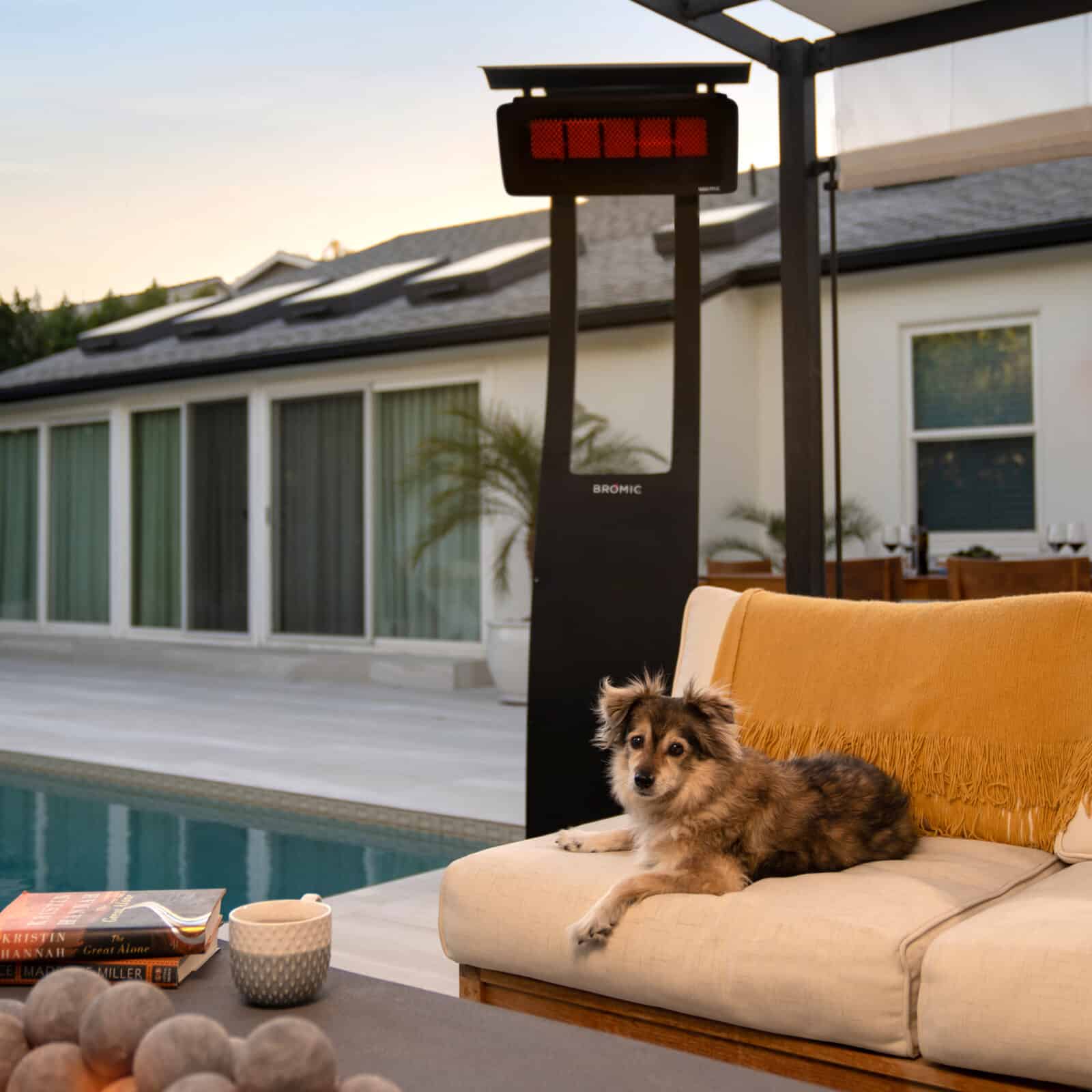
When determining the placement of your heaters, it is crucial to consider factors such as orientation, range, and coverage. Doing so lets you transform your outdoor area into a cozy haven where every corner is warm and comfortable. Proper heater placement can be complex, but luckily, Bromic provides a Complimentary Design Service that does the work for you!
Our design service helps you navigate the intricacies of heater placement to create the ideal winter outdoor space you desire. Our team of heating experts is on hand to provide support at every step, from technical drawings of a heat map of your floor plan to product recommendations for the most efficient outdoor heating solution. With tailored assistance, you can maximize efficiency and create a hassle-free experience in designing your dream outdoor space.
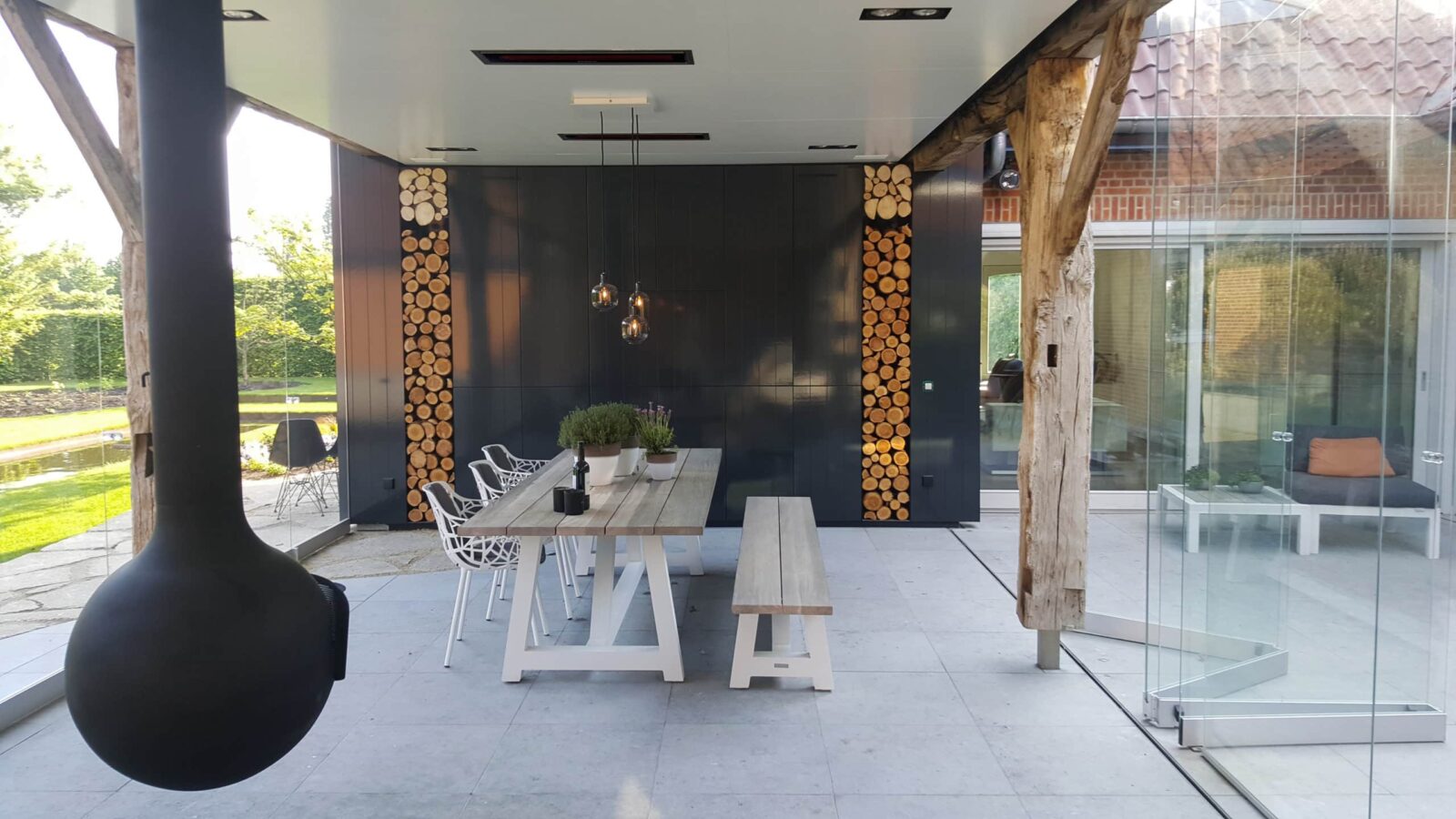
Utilize Windbreaks and Barriers:
Wind can make it difficult to enjoy the outdoors during colder weather. Fortunately, retractable screens on pergolas and other barriers can shield your outdoor space from the wind while enhancing your heater’s performance and maintaining the heat. By incorporating these features, you can create a comfortable and enjoyable outdoor sanctuary protected from the elements.
Combine with Winter Accessories:
Pair your outdoor heater with various accessories such as outdoor fireplaces and cozy blankets to make your outdoor experience more comfortable during colder weather.
Planning for Outdoor Heating Early:
Plan for outdoor heating early to enjoy your outdoor spaces throughout colder months. Ensuring you have the correct setup to create a warm and cozy outdoor space by specifying outdoor heating during the Spring and Summer seasons allows you to enjoy the outdoors, even when the temperature drops.
Utilize Your Space Year Round
In essence, outdoor heaters are highly effective solutions in the winter and should be noticed, offering the prospect of cozy outdoor spaces throughout the year. Achieving optimal heating efficiency involves strategic placement, integrating windbreaks, and thoughtful pairing with winter accessories.
Crucially, early planning, coupled with Bromic’s complimentary design service, ensures optimal performance. By embracing outdoor heating in advance, you extend the utility of your outdoor space, transcending the limitations of colder temperatures.

